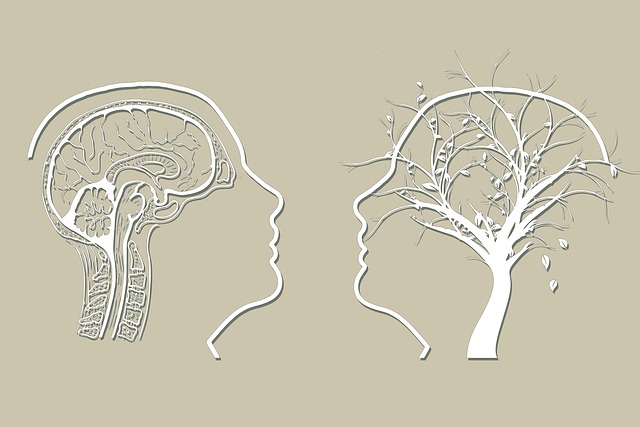Boulder Stress Management Therapy (BSMT) is an innovative, life-saving crisis intervention that offers immediate mental health support through safe spaces for emotional expression and practical tools. Unlike traditional therapy, BSMT focuses on stress reduction, mindfulness, and tailored cognitive reframing to empower individuals in managing acute stress and preventing crisis escalation. Through open communication, active listening, and validation, this structured approach fosters resilience, long-term recovery, and positive thinking—crucial elements in mitigating depression. Ideal for immediate relief from anxiety or as a foundation for future crisis management.
In times of crisis, effective intervention strategies can make a profound difference. This article guides you through essential aspects of crisis intervention, offering a comprehensive understanding of its concept and importance. We explore innovative approaches like Boulder Stress Management Therapy, known for its unique mitigation techniques. Additionally, we provide practical strategies for immediate support and delve into long-term recovery methods through therapy. By integrating these insights, individuals can navigate crises more effectively.
- Understanding Crisis Intervention: An Overview of Concept and Importance
- Boulder Stress Management Therapy: A Unique Approach to Mitigating Crises
- Practical Strategies for Immediate Crisis Support
- Long-term Recovery and Resiliency Building Through Therapy
Understanding Crisis Intervention: An Overview of Concept and Importance

Crisis intervention strategies are essential components of mental health support, designed to offer immediate assistance and guidance during moments of intense distress or traumatic events. This approach aims to help individuals stabilize, manage their emotions, and begin the process of recovery. By providing a safe space for expression and offering practical tools, crisis interventions can be life-saving, empowering folks to navigate challenging situations.
In today’s fast-paced world, where stress and mental health concerns are prevalent, understanding crisis intervention is crucial. It equips individuals with skills to manage not only acute crises but also chronic stressors, such as those often discussed in the Mental Wellness Podcast Series Production. Techniques like Boulder Stress Management Therapy focus on teaching adaptive coping strategies, fostering resilience, and promoting positive thinking—key elements in depression prevention. These interventions are a vital part of overall mental wellness, enabling individuals to navigate life’s twists and turns with greater equanimity.
Boulder Stress Management Therapy: A Unique Approach to Mitigating Crises

Boulder Stress Management Therapy (BSMT) offers a unique and innovative approach to crisis intervention by focusing on stress reduction and resilience-building techniques. Unlike traditional talk therapy, BSMT is designed to empower individuals with practical tools to manage acute stress responses and prevent crises from escalating. This method incorporates various therapeutic modalities, including mindfulness practices, cognitive reframing, and emotional regulation strategies, tailored to individual needs.
By integrating these techniques into a structured program, BSMT aims to enhance participants’ ability to navigate high-stress situations, fostering better mental health outcomes. The therapy’s effectiveness lies in its comprehensive nature, addressing not only the symptoms of stress but also promoting long-term mental well-being and conflict resolution skills, as supported by numerous successful case studies. This holistic approach is particularly beneficial for individuals seeking immediate relief from anxiety and those interested in learning practical tools to manage future crises.
Practical Strategies for Immediate Crisis Support

In moments of crisis, immediate support is paramount to helping individuals navigate and overcome challenging situations. A key strategy in crisis intervention guidance is to encourage open communication. Creating a safe, non-judgmental space for people to express their emotions and thoughts freely can be immensely beneficial. This involves active listening, empathy, and validating the individual’s feelings. For instance, skilled practitioners of Boulder Stress Management Therapy can help clients identify and label their emotions, providing them with a sense of control and agency during distressing times.
Additionally, incorporating practical coping skills development is essential. Simple yet effective techniques like deep breathing exercises, grounding strategies, or guided visualizations can empower individuals to manage intense emotions. Mental wellness journaling exercise guidance can also be provided, encouraging people to reflect on their experiences and identify patterns or triggers. These tools offer a sense of self-awareness and resilience, fostering better emotional regulation skills over time.
Long-term Recovery and Resiliency Building Through Therapy

In the journey towards crisis intervention, therapy plays a pivotal role in fostering long-term recovery and building resiliency. Boulder Stress Management Therapy, for instance, offers individuals a structured framework to navigate through stressful situations and develop effective coping mechanisms. This form of therapy encourages clients to explore underlying causes of distress, promoting self-awareness and empowering them to make positive changes. Through personalized strategies, individuals learn to enhance their self-care practices and cultivate inner strength development, enabling them to bounce back from future challenges with resilience.
The process involves teaching practical tools and techniques to manage stress, anxiety, or trauma. By integrating these skills into daily life, individuals can build mental fortitude and adaptability, crucial for navigating crises smoothly. Moreover, therapy provides a safe space to express emotions, reflect on personal experiences, and develop healthier ways of interacting with stressors. This holistic approach not only aids in immediate crisis intervention but also equips individuals with the resilience building tools needed to face future adversities head-on.
In conclusion, crisis intervention strategies play a pivotal role in helping individuals navigate challenging situations. By combining practical short-term support with long-term therapy focused on recovery and resilience, we can effectively mitigate the impact of crises. The unique approach of Boulder Stress Management Therapy offers a promising path forward, providing valuable tools for both immediate assistance and lasting personal growth.











